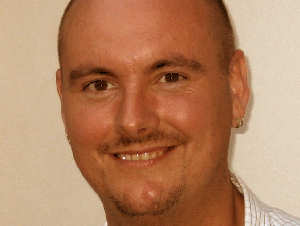What the pollsters forgot to tell you
 Regular Network Norfolk columnist James Knight looks beyond the headlines created by a recent poll on Christianity in the UK to highlight what happens when statistics are taken at face value.
Regular Network Norfolk columnist James Knight looks beyond the headlines created by a recent poll on Christianity in the UK to highlight what happens when statistics are taken at face value.
The recent poll carried out by Ipsos MORI for the Richard Dawkins Foundation for Reason and Science concerning the extent to which people are Christians has grabbed the headlines recently, with many Christian commentators or apologists responding with a retort. My main inclination to comment has only been in relation to what I'm now going to say in this article. The main area of focus has been the following statistic:
"At the time of the 2011 Census, just over half (54%) the public thought of themselves as Christian, compared with almost three-quarters (72%) in the 2001 Census."
Polls are said to be questions that tell us how people feel about certain issues, but usually they are not. What they actually are is a set of questions designed to reflect the outcome that the poll commissioners wish to see. If you want to convince the public that they feel a certain way about something, all you have to do is frontload the questions to direct people towards the answers you wish to see.
Let me offer an example. Imagine you're the Prime Minster and you want to bring back compulsory national service - you may want to mobilise military troops in a particular county beset by civil war, or you may want to get people off unemployment benefits, or something of that kind. What you'd like is a referendum that shows the nation is behind you - after all, if the majority of the electorate are seen to be backing you then your decision to bring back national service is not much of a political risk. The poll to see if people in favour is really a poll that you want to show people 'are' in favour. It might look something like this:
Politician: Sir, are you worried about the rise in crime among teenagers?
Person being surveyed: Yes.
Politician: Do you think there is lack of discipline and vigorous training in our Comprehensive Schools?
Person being surveyed: Yes.
Politician: Do you think young people welcome some structure and leadership in their lives?
Person being surveyed: Yes.
Politician: Do they respond to a challenge?
Person being surveyed: Yes.
Politician: Might you be in favour of reintroducing National Service?
Person being surveyed: Possibly.
Politician: Yes or no?
Person being surveyed: Yes.
 Now say you wanted to reach the opposite conclusion - by altering the question inversely you could get the survey to reflect a ‘no’ majority by frontloading the questions differently. For example:
Now say you wanted to reach the opposite conclusion - by altering the question inversely you could get the survey to reflect a ‘no’ majority by frontloading the questions differently. For example:
Politician: Sir, are you worried about the danger of war, the unrest in Middle East, North Korea and Islamism?
Person being surveyed: Yes.
Politician: Are you unhappy about the growth of armaments and nuclear non-proliferation?
Person being surveyed: Yes.
Politician: Do you think there's a danger in giving young people guns and bombs and teaching them how to kill?
Person being surveyed: Yes.
Politician: Do you think it's wrong to force people to take arms against their will?
Person being surveyed: Yes.
Politician: Would you oppose the reintroduction of conscription?
Person being surveyed: Yes.
What you’ve seen in the above illustration is the same people being surveyed, but a very different consensus based on the direction of the questioning. It's very rare that polls are conducted because commissioners are interested in people's opinions. Whenever you see a poll, expect that whoever requested its commissioning is looking to prove a point they had already preconceived. I expect the Richard Dawkins Foundation for Reason and Science didn't merely have a curiosity regarding people's religious beliefs - they wanted to show a nation that is losing its faith and becoming more secular as times goes on. Remember one thing though, proponents of secularism need not be unbelievers - many Christians are secular politically in that they want church and state politics kept separate. Given the foregoing, these following Ipsos MORI conclusions are not as revealing as the Richard Dawkins Foundation would have you believe:
1) Three quarters (74%) strongly agree or tend to agree that religion should not have special influence on public policy, with only one in eight (12%) thinking that it should.
2) More oppose than support the idea of the UK having an official state religion, with nearly half (46%) against and only a third (32%) in favour.
3) There is overwhelming support for religion being a private, not public, matter. Asked how strongly they support the statement that governments should not interfere in religion, 79% strongly agree or tend to agree, with only 8% strongly disagreeing or tending to disagree.
I'm a Christian, but I am largely in agreement with the above statements. The same is true of religious education - even amongst Christians there are opposing views on the merit of faith schools, with many Christians preferring greater scholastic diversity and a more eclectic mix of pupils. That said, one disturbing result was that even though "More Christians oppose (38%) than support (31%) the teaching of 6-day creationism in state-funded school science lessons." - it is very worrying that nearly a third of Christians supposedly espouse the teaching of pseudoscientific nonsense in schools.
Declining church attendance gets a lot of attention, but as I've said before, that's only really happening in CofE churches - the Pentecostal churches are significantly increasing their congregations with an impressive externally focused church ethos.
Next we have this from the Ipsos MORI poll - "When asked where they seek most guidance in questions of right and wrong, only one in ten (10%) said it was from religious teachings or beliefs, with over half (54%) preferring to draw on their own inner moral sense." This is the sort of result that I think misleads, and here's why. The question was "When it comes to right and wrong, which of the following, if any, do you most (stress most, my emphasis) look to for guidance?" The options were:
1) My own inner moral sense
2) Parents, family or friends
3) Religious teachings and beliefs
4) Philosophy and reason
It is fairly obvious that these four options are not mutually exclusive – they are perfectly compatible, and even Christians ought to feel that their inner moral sense is what drives their pursuit of rectitude – after all, most Christians probably believe that God gave them the moral sense with which to see God in Jesus. Without an inner moral sense we wouldn’t be able to see Jesus’ morality as being the most God-like the world has seen. Therefore it is either disingenuous or naive to set them up mutually exclusively in a multiple choice scenario.
The upshot of all this is that most polls are frontloaded, most statistics only cover the parts of the issue that give exhibition to the argument the statisticians want to express, and most belief systems are far too complex and multi-dimensional to be reduced to a few off-the-peg clichés and succinct phases.
I am not saying that Christian belief isn’t on the decline in the UK – it may well be going through a period of diminution. What I am saying is, the Richard Dawkins Foundation poll commissioned by Ipsos MORI doesn’t carry the weight that they claim – not just because the sample space isn’t broad enough, but mainly because the questions do not give enough credence to the complexity of the answers.
What is likely to happen is that if the new-wave atheists believe that they are singing from the same hymn sheet (pun intended) as most of the UK you may see in the future their brand of strident secularism becoming more and more like a militant religion. The response to a wavering Christianity isn’t a strident atheism, it is a better, more love and grace imbued Christianity. One might argue that the country needs that kind of love and grace spread about fairly urgently.
The views carried here are those of the author, not of Network Norwich and Norfolk, and are intended to stimulate constructive debate between website users. We welcome your thoughts and comments, posted below, upon the ideas expressed here. You can also contact the author direct at james.knight@norfolk.gov.uk
James is a Christian writer and local government officer based in Norwich. You can access his current collections of columns here
Meanwhile, if you want to find out more about Christianity, visit: www.rejesus.co.uk